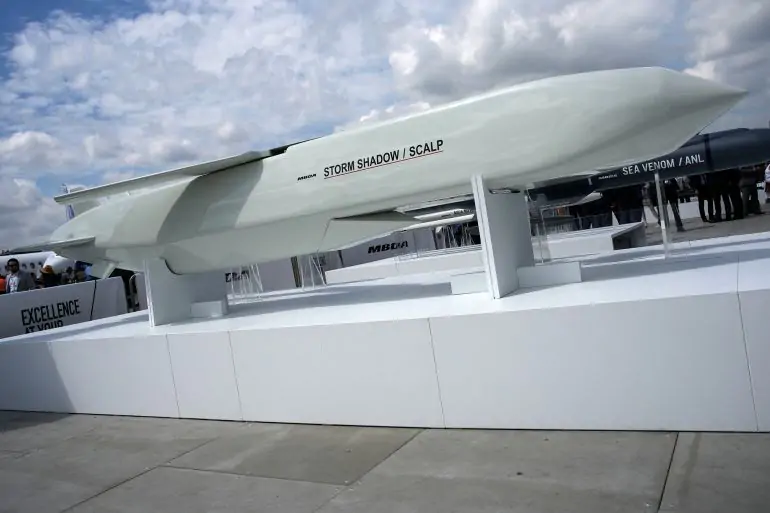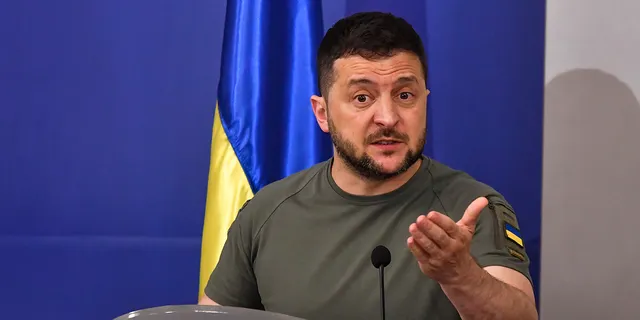On the first day of the Vilnius summit, NATO leaders shared some promising news for Ukraine! They expressed that Ukraine’s future is indeed in the alliance. However, they didn’t provide an exact timeline or send a formal invitation just yet.
In a fiery display of frustration, Ukrainian President Volodymyr Zelensky launched a scathing attack on the assembled NATO leaders in Vilnius on Tuesday. He vehemently opposed a statement regarding Ukraine’s membership prospects, labeling the process that led to it as “absurd.” Expressing his discontent on Twitter even before the NATO communiqué was made public, Zelensky voiced his concern about the exclusion of Ukraine from the discussion.
He emphasized that the wording focused on an invitation to join NATO, rather than addressing Ukraine’s membership directly. According to him, the lack of defined timelines for the invitation and Ukraine’s membership was both unprecedented and nonsensical.In a powerful address to the crowd in the Lithuanian capital, President Volodymyr Zelensky conveyed an inspiring message.
He assured that NATO will provide Ukraine with enhanced security, emphasizing the mutually beneficial nature of the alliance. Furthermore, he expressed his country’s commitment to strengthening the alliance, highlighting Ukraine’s contribution to its collective strength.
NATO Chief: ‘Clear path’ towards Ukraine’s Membership in the Alliance.
NATO Secretary General Jens Stoltenberg delivered a significant announcement regarding Ukraine. He stated that Ukraine will be extended a membership invitation once all allies reach a consensus and specific conditions are fulfilled. Moreover, he highlighted that the requirement of a membership action plan for Kyiv has been waived by the allies. This development marks a notable step forward in Ukraine’s path towards NATO membership.
In addition to the previous announcement, the NATO chief unveiled an extensive multi-year assistance program specifically tailored for Ukraine. This program aims to provide substantial support and aid to Ukraine over the coming years. Furthermore, the inaugural meeting of the NATO-Ukraine Council has been scheduled for Wednesday, where President Zelenskyy will actively participate. This significant event signifies a strengthened partnership and dialogue between NATO and Ukraine, paving the way for increased collaboration and cooperation.
This is a “strong” package to create “a clear path” towards Ukraine’s membership to NATO, Stoltenberg added.
In a momentous development, the NATO chief confirmed that the allies have unanimously endorsed “the most comprehensive defense plans since the end of the Cold War.” These meticulously crafted plans are strategically designed to effectively address the two primary challenges that NATO encounters: the formidable threats posed by Russia and terrorism. By approving these robust defense plans, NATO is poised to strengthen its collective security and enhance its capabilities in the face of evolving global challenges.
Ukraine expresses dissatisfaction with NATO’s declaration, deeming the wording ‘insufficient’.
According to Jonah Hull from Al Jazeera, NATO’s recent declaration, while falling short of extending a formal invitation to Ukraine to join the alliance, is contingent upon achieving unanimity among member states and Ukraine fulfilling a set of conditions, which currently remain vague.
Hull, reporting from Vilnius, remarked that NATO’s stance represents a significant step forward from the 2008 declaration acknowledging Ukraine’s eventual membership. However, he expressed skepticism about whether it would be deemed sufficient by Ukraine.
The path ahead for Ukraine and NATO remains uncertain, with the conditions and unanimity among member states serving as key factors in determining Ukraine’s future relationship with the alliance.
As per Jonah Hull from Al Jazeera, the specific wording of the declaration has been the subject of intense negotiation among NATO leaders. Hull emphasized that it represents a diplomatic effort to bridge the divide that has emerged between member countries on the eastern flank, who largely support Ukraine, and others, including Germany and the United States.
The latter group believes that the present time, amidst an ongoing conflict and in the absence of predictable parameters for a peace agreement, is not opportune for extending an invitation to Ukraine. The deliberations surrounding the wording of the declaration reflect the complexity of finding common ground within NATO and addressing the diverse perspectives and concerns of its member states.
France extends a friendly offer to supply Ukraine with the advanced “SCALP missile”.

During the NATO summit in Lithuania, French President Emmanuel Macron announced that France will provide Ukraine with long-range cruise missiles to support its counteroffensive against Russia. Speaking on Tuesday, President Macron stated that the delivery of these missiles is intended to enhance the Ukrainian forces’ capability to conduct impactful strikes deep within enemy territory.
This move by France signifies its commitment to bolstering Ukraine’s defensive capabilities and providing tangible support in its efforts to counter Russian aggression.
Although President Macron did not provide specific details about the weapons to be supplied, French government officials have informed reporters that he was referring to SCALP missiles. These advanced missiles have an impressive range of 250 kilometers (155 miles), enabling them to cover significant distances during military operations. This disclosure sheds light on the nature of the support France intends to extend to Ukraine, emphasizing the provision of highly capable weaponry to bolster Ukraine’s defensive capabilities in its ongoing efforts.
What is SCALP missile
The SCALP missile, weighing approximately 1,300 kilograms (2,870 pounds), is equipped with conventional explosives and is commonly launched from aircraft such as the British Royal Air Force’s Eurofighter Typhoon or France’s Rafale. Manufactured by MBDA, a European defense company, it holds the distinction of being the longest-range Western weapon provided to Kyiv thus far, surpassing Ukraine’s own capacities by threefold prior to the delivery of Britain’s Storm Shadow missiles in May.
This supply of SCALP missiles marks a significant enhancement of Ukraine’s military capabilities, providing them with advanced long-range weaponry to reinforce their defense efforts.
With its impressive capabilities, the SCALP missile possesses the capacity to strike targets deep within Ukraine’s Russian-occupied eastern regions. It can reach well beyond the front lines, which have remained relatively static for several months. This extended range of the missile enables Ukrainian forces to target areas that were previously out of reach, providing them with a strategic advantage in their defensive operations.




